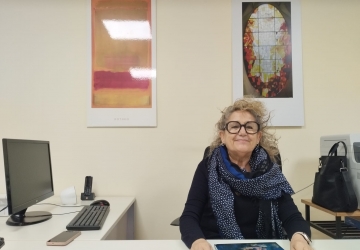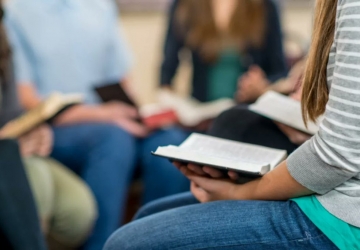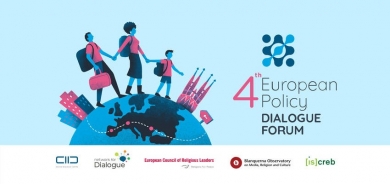4th European Policy Dialogue Forum
The European Policy Dialogue Forum (EPDF) brings together policymakers, religious actors and experts to discuss social cohesion in Europe. A platform for discussing ways to foster the social inclusion of refugees and migrants in Europe and to find creative ways to address and counter hate speech, the Forum gathers diverse participants in interactive discussions that combine different perspectives and build bridges between various actors working with refugees and migrants around Europe. The Forum also puts dialogue at the forefront to identify ways to put into action potential new directions on migration policies, and pathways for new initiatives and partnerships to contribute to the work of policymakers.
Thematic Focus
This year’s theme, “Social Inclusion in Cities”, highlights the importance of European cities as key spaces to ensure healthy societal diversity and social inclusion. The sessions at this year’s EPDF inquire into the roles that different urban stakeholders – from media and policy makers to religious actors – can play to achieve inclusive societies and how collaboration among them can be better encouraged. The Forum concentrates on two specific topics:
Multistakeholder partnerships on migration. This topic highlights creating and strengthening multistakeholder partnerships (MSPs) on migration to foster joint action and effective support of urban social inclusion processes. Participants will examine how effective MSPs bring together actors with complementary skills at the urban level to strengthen the capability to address the complex needs and changing issues involved in social cohesion initiatives, and what these partners can do together to make sure refugees and migrants feel both empowered and at home in European cities, while bearing in mind the needs of the local host community.
Cultural and media initiatives to counter hate speech. This topic explores the power of culture and media initiatives to counter hate-speech in European cities, with the understanding that hate speech is particularly divisive force affecting religious and cultural minorities in Europe. Participants will examine existing and potential cultural and media initiatives that counter hate speech, discuss what they need to do to address fears and break patterns of systemic exclusion more effectively, and how to engage cultural and media institutions along with different actors to contribute to such endeavours.
The 4th European Policy Dialogue Forum will take place in Barcelona, Spain on 9-10 November 2022. It is organized by the International Dialogue Centre (KAICIID) and the Network for Dialogue in partnership with the European Council of Religious Leaders / Religions for Peace Europe (ECRL/RfP) and the support of the Organization for Security and Cooperation in Europe’s Office for Democratic Institutions and Human Rights (ODIHR). Local partners are Blanquerna Observatory for Media, Culture and Religion of the Ramon Llull University and the Instituto Superior de Ciencias Relogiosas de Barcelona (ISCREB).
For more details about the European Policy Dialogue Forum, please get in touch with KAICIID’s Europe Region team at europe@kaiciid.org. For any media-related question or to register for the forum as a media representative, please contact press@kaiciid.org.
Background
The International Dialogue Centre (KAICIID) established the Network for Dialogue platform in 2019, which brings together secular and faith-based civil society organizations from across Europe to strengthen dialogical approaches in the integration of refugees and migrants.
This follows the successful organisation of the pre-EPDF workshop that took place with 40 participants on 7-8 June 2022 outside of Stockholm, Sweden and the two subsequent policy papers. Policy Paper #1 looks at the potential of cultural and media institutions in countering hate speech and the need to engage them in such initiatives. Policy Paper #2 examines the role of multi-stakeholder partnerships in fostering social integration of migrants and refugees in Europe. The policy papers highlight existing initiatives, identify challenges and opportunities, and provide recommendations for policy makers, religious actors and other actors involved in social integration efforts in European cities. The policy papers can be downloaded below.
Context in Europe
Refugees face numerous hurdles in their new social, economic and political lives in their host country. Many difficulties are due to policies that do not always distinguish between the needs of specific groups versus the unique needs of each individual. Rapid changes in diversity due to immigration and divisions between social and ethnic groups displayed by the prevalence of hate speech further add a layer of complexity. Tailored collaborative actions are required to effectively address hate speech, bridge societal divides and foster social cohesion.
Refugees, migrants and members of host societies need contact points and shared spaces to successfully integrate in their new environments. Dialogue can help foster mutual understanding and a two-way integration to better understand each other’s cultural context, including one’s religious background.
Local and national initiatives can become positive examples for other cities and countries to learn about and embrace opportunities that help refugees enjoy equal rights and boost their integration. The social inclusion of refugees and migrants provides the means for disadvantaged groups to access resources and experience wellbeing.
Participants
The 4th European Policy Dialogue Forum will bring together around 100 participants from 30 European countries. The participants represent actors in European cities that are building and implementing effective policies that benefit social cohesion in urban centres. Participants include representatives of faith-based and civil society organizations working on social cohesion and countering hate speech, including migrant and refugee-led organizations, Network for Dialogue members, policy makers from the local level, and religious actors and leaders. The event is by invitation only.
Approach and Methodology
Dialogue is a tool to foster an attitude of openness and understanding for diversity. By providing a space for dialogue, the European Policy Dialogue Forum enables participants to share experiences and harvest perspectives of current refugee and migration policies in Europe. This input contributes to collaborations between policymakers, religious leaders, scholars and civil society, and provides a means for developing policy recommendations. The EPDF uses interactive methods and invites the active participation of all participants to share their views and ideas.
Download Further Information
| Agenda of the 4th EPDF | Speaker Bios |
| Policy Paper on the Role of Multi-Stakeholder Partnerships in Enhancing Social Cohesion in Europe | Policy Paper on Engaging Culture and Media to Counter Hate Speech in Big European Cities |
| Two-Pager on EPDF | One-Pager on Engaging Cultural and Media Institutions to Counter Hate Speech |
| One-Pager on Multistakeholder Partnerships on Migration | Policy Briefs of the Network for Dialogue from the 2nd and 3rd edition of the EPDF |
| Research Papers on religious actors in Europe and countering hate speech | Research Paper on educational initiatives to counter hate speech in Europe |



